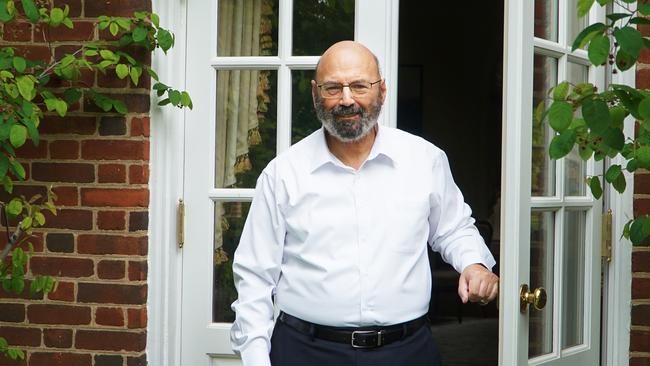Border can’t open until the world is vaccinated: Sinodinos
Ambassador to the US Arthur Sinodinos has raised the prospect of indefinite restrictions travel in and out of Australia.

Ambassador to the US Arthur Sinodinos has raised the prospect of indefinite restrictions travel in and out of Australia, suggesting the border couldn’t open until “the world is vaccinated”.
Speaking at an online event on Friday at the Washington DC-based Hudson Institute, Mr Sinodinos suggested reopening the border was an “economic imperative” but unlikely to happen soon, especially given popularity of restrictions.
“We have major industries like international education which require people coming in, immigration has been big driver of Australian growth and that’s really tailed off. For us there’s a real economic imperative to getting borders open,” he said.
“Because we’ve done well on community transmission there isn’t same pressure from the public to get the vaccines out … it’s not like the US and elsewhere where there’s been a real urgency,” he added.
Australia’s international border has been shut to foreigners since March 20 last year and returning residents subject to 14 day hotel quarantine, even if vaccinated, at a cost of $3000 per person.
“Until the world as a whole is vaccinated, and I’m thinking here of India, and other places, then we’re never going to be completely out of this.
“This is a genuine externality problem, or public good problem, where we’re all in this together and people in developing countries being vaccinated is as important as people in our own countries being vaccinated,” the ambassador said.
His comments follow Health Minister Greg Hunt’s recent remarks that even if the whole country were vaccinated the border wouldn’t open.
In a wide-ranging online discussion with American journalist Walter Russell Meade, Mr Sinodinos played down the impact of the federal government’s tearing up of Victoria’s Belt and Road deal with China.
“In terms of how it makes the relationship any worse … I’m not sure about that,” he said. “The relationship has reached a certain equilibrium … I don’t think we can see an early reset.”
Mr Sinodinos said in its series of economic sanctions on Australian exports, including on wine, barely and coal, China was trying to set an example to other nations that if they behaved like Australia, they too would face economic consequences.
“We’re finding now China increasingly lashing out at any country which appears to be in any way critical or seeking to take then on in terms of their behaviour,” he said.
On climate change policy, Mr Sinodinos played down the perception Australia and the new Biden administration were at odds in the wake of President Biden’s climate summit last week, revealing the government would have a “dialogue with the US” on “ambition and technology” in the lead up to the UN’s climate summit in Glasgow later this year.
“The reality is Australia reviewed its Nationally Determined Contributions at end of last year, so the thinking within the Australian government prior to the recent climate summit was we have the period until Glasgow to see what more we can do,” he added.
The ambassador also dismissed the “stereotype that’s been developing” that New Zealand was a less willing participant in the Five Eyes intelligence network which also includes Australia, the US, UK, and Canada.
“They see a lot of value [in the group] I don’t detect on their part some wish to disassociate,” he said.




To join the conversation, please log in. Don't have an account? Register
Join the conversation, you are commenting as Logout